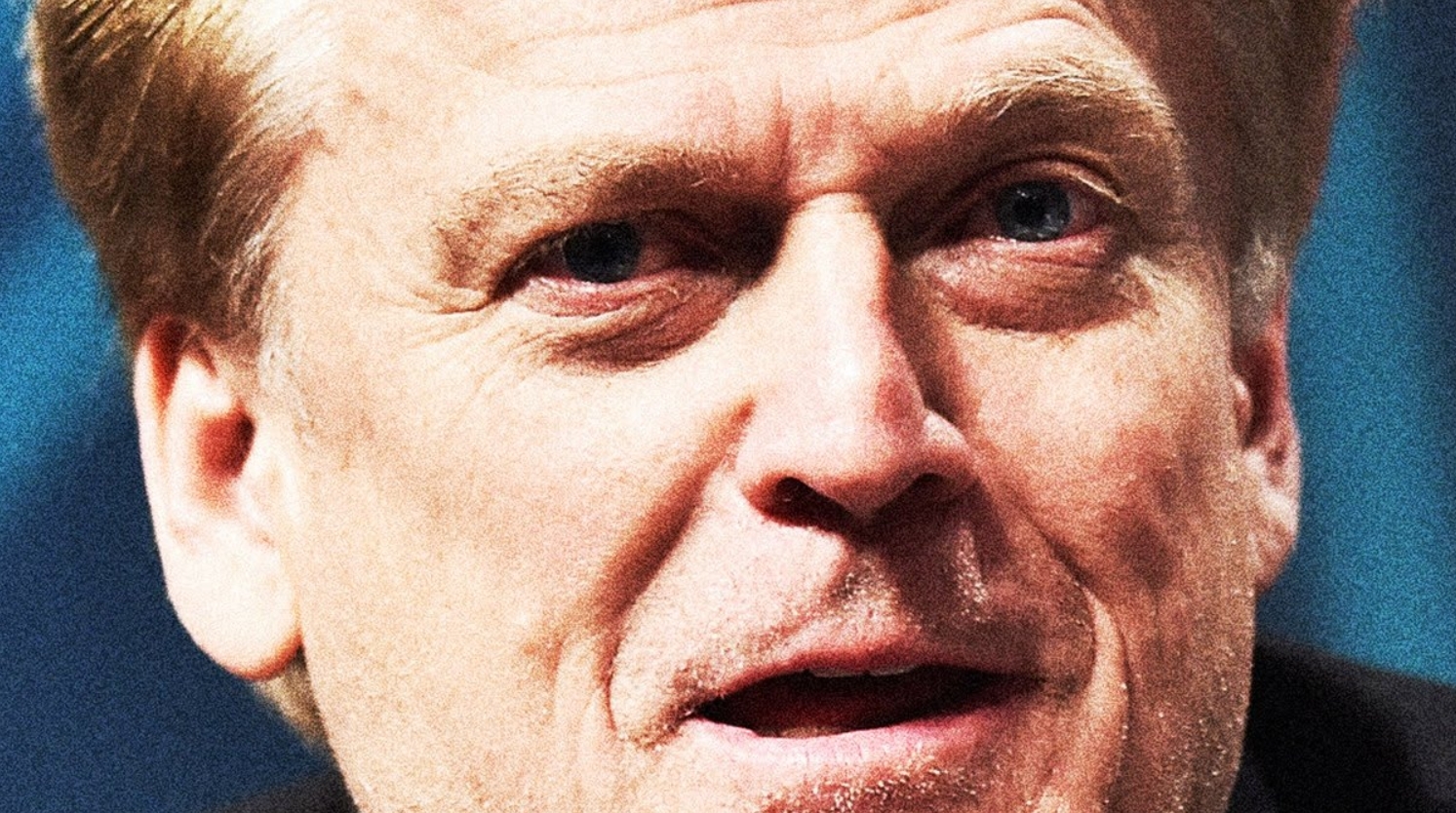Welcome to DU!
The truly grassroots left-of-center political community where regular people, not algorithms, drive the discussions and set the standards.
Join the community:
Create a free account
Support DU (and get rid of ads!):
Become a Star Member
Latest Breaking News
General Discussion
The DU Lounge
All Forums
Issue Forums
Culture Forums
Alliance Forums
Region Forums
Support Forums
Help & Search
Celerity
Celerity's Journal
Celerity's Journal
May 29, 2021




My team since I could talk. I grew up (in South Kensington) right down Fulham Rd from the Bridge.
To all the haters:

https://twitter.com/ChelseaFC/status/1398754224809426964

CL spoiler
some splodey heads no doubt, as BLUE IS THE COLOUR OF EUROPE AGAIN

My team since I could talk. I grew up (in South Kensington) right down Fulham Rd from the Bridge.
To all the haters:

https://twitter.com/ChelseaFC/status/1398754224809426964

May 24, 2021
https://www.thedailybeast.com/overstock-founder-will-sell-you-election-fraud-for-dollar5-per-month

Overstock.com founder Patrick Byrne became a political star in the aftermath of Donald Trump’s election defeat, joining a cast of MAGA allies who gained new prominence on the right by insisting that the election had been stolen. The idiosyncratic tech figure even made it to Trump’s inner circle in the last days of the administration, scarfing down snacks in a bizarre White House meeting where he told Trump that the president’s top staffers had abandoned him. With Trump out of office, Byrne has appeared at rallies alongside similar Trump boosters like MyPillow CEO Mike Lindell and pro-Trump lawyers Sidney Powell and Lin Wood, promising that bombshell revelations about election fraud are just around the corner. After a few months running down leads for the MAGA cause, though, Byrne says it’s time for fans to pay for his wisdom. As he insists that the country will soon be rocked by “hand grenades” and “Mother of All Bombs”-level revelations about voter fraud, Byrne has started putting some of his updates on his fight to prove election malfeasance behind a paywall, charging his supporters $5 a month to see the “truth” about the election.
As other election-fraud falsehood promoters like Wood and Powell solicit donations for nonprofits that they control, Byrne’s private election updates mark a new step toward making a permanent, well-funded industry on the right out of denying that Joe Biden legitimately won the election. For many of his fans, Byrne’s sales pitch has clashed with the urgency of his message. If the facts Byrne is revealing about the election are so vital, with the fate of American democracy itself at stake, why is he charging for it? “I’m really disappointed,” one Byrne fan posted Saturday on Byrne’s page on Telegram, a social network that’s become popular with the far right. “If this is the make or break revolution we are told it is, why are we paying for information?” Another Byrne commenter pointed out that, as the founder of a company now valued at more than $3 billion, Byrne is not exactly hard up for cash. Byrne’s net worth isn’t public, but he sold the entirety of his Overstock for around $90 million in 2019, after resigning from the company following revelations of his relationship with Russian agent Maria Butina.
Byrne no longer has any affiliation with Overstock. “The fact that the former CEO of Overstock needs our monthly donation to do what you’re doing still makes me suspicious,” the Telegram user wrote. Byrne has won over plenty of devotees, though, and is set to pull in more than $1.1 million annually from his paywalled election updates, according to a Daily Beast analysis of his following. Byrne set up his paywalled election-fraud feed this spring on Locals, a subscription site founded by right-wing comedian Dave Rubin that is also used by Fox News host Greg Gutfeld and Dilbert creator Scott Adams. So far, Byrne has amassed more than 19,100 subscribers, each paying either a $5 monthly fee or a $55 annual subscription. At the monthly rate, that means Byrne can expect to pull in $1.15 million annually, minus credit card processing fees and a 10 percent cut taken by Rubin’s company.
Byrne claims he also moved many of his updates from Telegram to Locals because he likes the site’s format, dubbing it “OnlyFans for intellectuals,” in a reference to the subscription-based adult entertainment site. In an email to The Daily Beast, Byrne defended charging for updates on his hunt for election fraud, insisting that all of the money goes toward his efforts to fight what he’s called a “soft coup.” Byrne claimed he has spent $5.5 million of his own money so far investigating election fraud, part of $45 million he claims to have spent over 15 years “investigating corruption in USA.” In the run-up to the election, Byrne has claimed, he funded a team of “various odd people” he dubbed the “Bad News Bears,” investigating election fraud. “100% of the FUNDS people are paying me on Locals are going to help fight this fight,” Byrne told The Daily Beast. “People say they want to help. Well OK, here’s a way to sign up for five dollars per month.” Byrne declined to say exactly how the money he makes from Locals will be spent.
snip
PAY FOR CRAY - Overstock Founder Will Sell You Election Fraud for $5 Per Month
“People say they want to help. Well OK, here’s a way to sign up for five dollars per month,” former Overstock CEO Patrick Byrne told The Daily Beast.https://www.thedailybeast.com/overstock-founder-will-sell-you-election-fraud-for-dollar5-per-month

Overstock.com founder Patrick Byrne became a political star in the aftermath of Donald Trump’s election defeat, joining a cast of MAGA allies who gained new prominence on the right by insisting that the election had been stolen. The idiosyncratic tech figure even made it to Trump’s inner circle in the last days of the administration, scarfing down snacks in a bizarre White House meeting where he told Trump that the president’s top staffers had abandoned him. With Trump out of office, Byrne has appeared at rallies alongside similar Trump boosters like MyPillow CEO Mike Lindell and pro-Trump lawyers Sidney Powell and Lin Wood, promising that bombshell revelations about election fraud are just around the corner. After a few months running down leads for the MAGA cause, though, Byrne says it’s time for fans to pay for his wisdom. As he insists that the country will soon be rocked by “hand grenades” and “Mother of All Bombs”-level revelations about voter fraud, Byrne has started putting some of his updates on his fight to prove election malfeasance behind a paywall, charging his supporters $5 a month to see the “truth” about the election.
As other election-fraud falsehood promoters like Wood and Powell solicit donations for nonprofits that they control, Byrne’s private election updates mark a new step toward making a permanent, well-funded industry on the right out of denying that Joe Biden legitimately won the election. For many of his fans, Byrne’s sales pitch has clashed with the urgency of his message. If the facts Byrne is revealing about the election are so vital, with the fate of American democracy itself at stake, why is he charging for it? “I’m really disappointed,” one Byrne fan posted Saturday on Byrne’s page on Telegram, a social network that’s become popular with the far right. “If this is the make or break revolution we are told it is, why are we paying for information?” Another Byrne commenter pointed out that, as the founder of a company now valued at more than $3 billion, Byrne is not exactly hard up for cash. Byrne’s net worth isn’t public, but he sold the entirety of his Overstock for around $90 million in 2019, after resigning from the company following revelations of his relationship with Russian agent Maria Butina.
Byrne no longer has any affiliation with Overstock. “The fact that the former CEO of Overstock needs our monthly donation to do what you’re doing still makes me suspicious,” the Telegram user wrote. Byrne has won over plenty of devotees, though, and is set to pull in more than $1.1 million annually from his paywalled election updates, according to a Daily Beast analysis of his following. Byrne set up his paywalled election-fraud feed this spring on Locals, a subscription site founded by right-wing comedian Dave Rubin that is also used by Fox News host Greg Gutfeld and Dilbert creator Scott Adams. So far, Byrne has amassed more than 19,100 subscribers, each paying either a $5 monthly fee or a $55 annual subscription. At the monthly rate, that means Byrne can expect to pull in $1.15 million annually, minus credit card processing fees and a 10 percent cut taken by Rubin’s company.
Byrne claims he also moved many of his updates from Telegram to Locals because he likes the site’s format, dubbing it “OnlyFans for intellectuals,” in a reference to the subscription-based adult entertainment site. In an email to The Daily Beast, Byrne defended charging for updates on his hunt for election fraud, insisting that all of the money goes toward his efforts to fight what he’s called a “soft coup.” Byrne claimed he has spent $5.5 million of his own money so far investigating election fraud, part of $45 million he claims to have spent over 15 years “investigating corruption in USA.” In the run-up to the election, Byrne has claimed, he funded a team of “various odd people” he dubbed the “Bad News Bears,” investigating election fraud. “100% of the FUNDS people are paying me on Locals are going to help fight this fight,” Byrne told The Daily Beast. “People say they want to help. Well OK, here’s a way to sign up for five dollars per month.” Byrne declined to say exactly how the money he makes from Locals will be spent.
snip
May 24, 2021



snip
The Best Books of 2021 (So Far)
https://www.thrillist.com/entertainment/nation/best-books-of-2021
Prepare for your stack of To-Reads to thrive this year. Even as the country starts opening back up again, a part of us still wants to blow off plans and stay in with a great new book. Luckily, the 2021 releases include some of the most exciting titles in recent years, from bold debuts to the return of some of the best contemporary writers. It's always tough whittling down a bottomless trove of potentially excellent titles to just a small pile, but we managed: These are the books we're loving in 2021 thus far. Need more reading recommendations? Check out our favorite books from 2020 and 2019.


snip
May 24, 2021
https://www.thedailybeast.com/in-fight-over-1619-project-and-nikole-hannah-jones-white-ignorance-has-been-blissand-power

Hell hath no fury like a white conservative confronted with the unvarnished history of slavery and racism in America. For nearly two solid years, right-wing reactionaries have been apoplectic over the 1619 Project, a journalistic exploration of the indelible impact of Black enslavement on these United States put together by New York Times journalist Nikole Hannah-Jones. The same angry mob has also attacked a heretofore obscure, four-decades-old analytical methodology for understanding the institutionalism of white supremacy and anti-Black racism called Critical Race Theory. The white conservative rage has been prolific, producing two House bills seeking to ban CRT and other “anti-American and racist theories” along with legislation in about a dozen states. The Trump administration put out its own 1776 Report, meant to “correct” the 1619 Project—which the American Historical Association called “simplistic” and full of “falsehoods, inaccuracies, omissions, and misleading statements.” Now the mob is vilifying Pulitzer Prize-winner Hannah-Jones, getting the University of North Carolina-Chapel Hill to cravenly retract a tenured position offer, replacing it with a five-year professor of practice contract.
All of these efforts obviously aim to re-center the white supremacist historical fable that roughly 350 years of slavery and Jim Crow were unfortunate—but inconsequential—events in an America of full equality of opportunity, where any difference between the races could only be a result of Black laziness and white superiority. That fairy tale speaks volumes about how desperately reliant white supremacy is on maintaining white ignorance. You just can’t have one without the other. It’s that embrace of ignorance that lets these racists ignore the long tradition of mandated white ignorance they’re now trying to extend into the future. “White ignorance,” according to NYU philosopher Charles W. Mills, is an “inverted epistemology,” a deep dedication to and investment in non-knowing that explains white supremacy’s highly curatorial (and often oppositional) approach to memory, history and the truth. While white ignorance is related to the anti-intellectualism that defines the white Republican brand, it should be regarded as yet more specific. According to Mills, white ignorance demands a purposeful misunderstanding of reality—both present and historical—and then treats that fictitious world-view as the singular, de-politicized, unbiased, “objective” truth. “One has to learn to see the world wrongly,” under the terms of white ignorance, Mills writes, “but with the assurance that this set of mistaken perceptions will be validated by white epistemic authority.”
To challenge that epistemic authority with uncomfortable but verifiable facts about race and racism guarantees the wrath of those who are otherwise quick to claim “facts don’t care about your feelings.” The 1619 Project has required tweaks and corrections. But the wholesale discounting of the initiative by white conservatives, who ignored the sloppy, error-filled 1776 Report, is more than a classic display of hypocrisy. It’s a testament to how deeply critical white ignorance is to white supremacy. In reality—not the manicured “reality” of white supremacist historical delusion, but bonafide existence—historical fact has always hurt the feelings of white supremacists. In response, they have consistently used self-serving lies of omission to make themselves feel better. Were they less averse to historical truth, today’s white conservatives might already know this. They’d perhaps be aware that the United Daughters of the Confederacy—the white Southern ladies group that put up most Confederate monuments, including one explicitly lauding the Ku Klux Klan—released a 1919 manifesto in all but name demanding “all authorities charged with the selection of textbooks for colleges, schools and all scholastic institutions” across the South only accept books depicting the Confederacy glowingly.
Conversely, those books that correctly identified Confederate soldiers as traitors or rebels, rightly located slavery as the central cause of the Civil War, depicted the figure of the “slaveholder as cruel or unjust to his slaves,” or “glories Lincoln and vilifies Jefferson Davis,” were to be rejected. The UDC ordered school librarians to deface books that were insufficiently praiseful of the Confederacy by scrawling "Unjust to the South” on the title page. Well into the 1970s, these rules dictated the history lessons taught to Southern children, both Black and white. The group’s rewriting of history to make slavery benign, Black resistance invisible, and white terror no biggie—also known as the ahistorical Lost Cause myth—is being re-engineered for this moment. Modern complaints about so-called “cancel culture” and political correctness are also linked to white ignorance, allowing the know-nothings who wield it to deny the harms of whiteness while turning themselves into victims of overly aggressive Black declarations of personhood. Across the 1940s and ’50s, the NAACP campaigned to purge racist language from history books, targeting passages that extolled the KKK and references to enslaved Black folks as happy “Sambos.” In response, the Washington Post dismissed their concerns as “humorless touchiness,” an old-timey way of calling them snowflakes. One WaPo editorial stated that to “insist that Negroes be given equal rights with other citizens is one thing. To insist that their particular sensibilities entitle them to exercise a kind of censorship is quite another."
snip
White Ignorance Is Bliss--and Power
The people demanding legally mandated ignorance now are probably ignorant of the long, racist tradition they’re a part of.https://www.thedailybeast.com/in-fight-over-1619-project-and-nikole-hannah-jones-white-ignorance-has-been-blissand-power

Hell hath no fury like a white conservative confronted with the unvarnished history of slavery and racism in America. For nearly two solid years, right-wing reactionaries have been apoplectic over the 1619 Project, a journalistic exploration of the indelible impact of Black enslavement on these United States put together by New York Times journalist Nikole Hannah-Jones. The same angry mob has also attacked a heretofore obscure, four-decades-old analytical methodology for understanding the institutionalism of white supremacy and anti-Black racism called Critical Race Theory. The white conservative rage has been prolific, producing two House bills seeking to ban CRT and other “anti-American and racist theories” along with legislation in about a dozen states. The Trump administration put out its own 1776 Report, meant to “correct” the 1619 Project—which the American Historical Association called “simplistic” and full of “falsehoods, inaccuracies, omissions, and misleading statements.” Now the mob is vilifying Pulitzer Prize-winner Hannah-Jones, getting the University of North Carolina-Chapel Hill to cravenly retract a tenured position offer, replacing it with a five-year professor of practice contract.
All of these efforts obviously aim to re-center the white supremacist historical fable that roughly 350 years of slavery and Jim Crow were unfortunate—but inconsequential—events in an America of full equality of opportunity, where any difference between the races could only be a result of Black laziness and white superiority. That fairy tale speaks volumes about how desperately reliant white supremacy is on maintaining white ignorance. You just can’t have one without the other. It’s that embrace of ignorance that lets these racists ignore the long tradition of mandated white ignorance they’re now trying to extend into the future. “White ignorance,” according to NYU philosopher Charles W. Mills, is an “inverted epistemology,” a deep dedication to and investment in non-knowing that explains white supremacy’s highly curatorial (and often oppositional) approach to memory, history and the truth. While white ignorance is related to the anti-intellectualism that defines the white Republican brand, it should be regarded as yet more specific. According to Mills, white ignorance demands a purposeful misunderstanding of reality—both present and historical—and then treats that fictitious world-view as the singular, de-politicized, unbiased, “objective” truth. “One has to learn to see the world wrongly,” under the terms of white ignorance, Mills writes, “but with the assurance that this set of mistaken perceptions will be validated by white epistemic authority.”
To challenge that epistemic authority with uncomfortable but verifiable facts about race and racism guarantees the wrath of those who are otherwise quick to claim “facts don’t care about your feelings.” The 1619 Project has required tweaks and corrections. But the wholesale discounting of the initiative by white conservatives, who ignored the sloppy, error-filled 1776 Report, is more than a classic display of hypocrisy. It’s a testament to how deeply critical white ignorance is to white supremacy. In reality—not the manicured “reality” of white supremacist historical delusion, but bonafide existence—historical fact has always hurt the feelings of white supremacists. In response, they have consistently used self-serving lies of omission to make themselves feel better. Were they less averse to historical truth, today’s white conservatives might already know this. They’d perhaps be aware that the United Daughters of the Confederacy—the white Southern ladies group that put up most Confederate monuments, including one explicitly lauding the Ku Klux Klan—released a 1919 manifesto in all but name demanding “all authorities charged with the selection of textbooks for colleges, schools and all scholastic institutions” across the South only accept books depicting the Confederacy glowingly.
Conversely, those books that correctly identified Confederate soldiers as traitors or rebels, rightly located slavery as the central cause of the Civil War, depicted the figure of the “slaveholder as cruel or unjust to his slaves,” or “glories Lincoln and vilifies Jefferson Davis,” were to be rejected. The UDC ordered school librarians to deface books that were insufficiently praiseful of the Confederacy by scrawling "Unjust to the South” on the title page. Well into the 1970s, these rules dictated the history lessons taught to Southern children, both Black and white. The group’s rewriting of history to make slavery benign, Black resistance invisible, and white terror no biggie—also known as the ahistorical Lost Cause myth—is being re-engineered for this moment. Modern complaints about so-called “cancel culture” and political correctness are also linked to white ignorance, allowing the know-nothings who wield it to deny the harms of whiteness while turning themselves into victims of overly aggressive Black declarations of personhood. Across the 1940s and ’50s, the NAACP campaigned to purge racist language from history books, targeting passages that extolled the KKK and references to enslaved Black folks as happy “Sambos.” In response, the Washington Post dismissed their concerns as “humorless touchiness,” an old-timey way of calling them snowflakes. One WaPo editorial stated that to “insist that Negroes be given equal rights with other citizens is one thing. To insist that their particular sensibilities entitle them to exercise a kind of censorship is quite another."
snip
May 24, 2021
https://edition.cnn.com/2021/05/23/us/simone-biles-yurchenko-double-pike-trnd/index.html
https://twitter.com/TeamUSA/status/1396258097707065347
Simone Biles becomes first woman to land Yurchenko double pike vault in competition
https://edition.cnn.com/2021/05/23/us/simone-biles-yurchenko-double-pike-trnd/index.html
https://twitter.com/TeamUSA/status/1396258097707065347
May 24, 2021

The Bundesliga giants can no longer cling to the past after they were relegated in humiliating style on the season’s final day
https://www.theguardian.com/football/blog/2021/may/24/shock-horror-grief-relegated-werder-bremen-bundesliga




snip
Shock, horror and grief: relegated Werder Bremen get what they deserve

The Bundesliga giants can no longer cling to the past after they were relegated in humiliating style on the season’s final day
https://www.theguardian.com/football/blog/2021/may/24/shock-horror-grief-relegated-werder-bremen-bundesliga




snip
May 24, 2021

If consumers are not given the tools to go green, then their eco-awakening could doom the climate.
https://socialeurope.eu/ethical-consumerism-meets-eco-awakening
Biodiversity loss threatens one million animals and plants with extinction. But as we celebrate United Nations International Day for Biodiversity (May 22nd) we see a silver lining: consumers are waking up. There is an ‘eco-awakening’, where environmental consciousness and consumerism intertwine, transforming how we live and interact with the world. However, going green can be tricky. Faced with a lack of transparency, consumers are often unable to make the right choices, dooming the climate unless we adopt transformative solutions. After the events of 2020, consumers made one thing clear: they want a more sustainable world. The WWF recently reported on this eco-awakening, finding that 93 per cent of Europeans consider biodiversity a ‘very serious’ problem, reflecting a change in consumption patterns which will predict how consumers act in the future. For example, a recent report by Future Market Insights discovered the ‘organic’ skincare market is expected to grow 8.1 per cent in the next decade, as more people use the experiences of Covid-19, climate change and increasing health problems to influence purchases.
Misleading claims
Yet as more consumers make the transition to ‘eco-friendly’ choices, there is a risk of companies marketing unsustainable products as sustainable to meet demand. The Competition and Markets Authority in the United Kingdom has promised to tackle misleading ‘green’ claims, having found that 40 per cent of globally advertised online products featured false or misleading environmental assertions. The term ‘organic’ has been particularly controversial. A UK study discovered organic produce yielded 40 per cent less than alternatives, therefore requiring up to 1.5 times more land. An MIT Technology Review report found that due to this increase in land—often outsourced to vulnerable tropical forests such as around the Amazon—organic produce released 21 per cent more greenhouse gases than its counterparts. This ‘greenwashing,’ or the attempt to disguise environmentally harmful products as environmentally friendly, will only grow as more consumers convert to sustainable options. This is in part due to a lack of accountability but also because consumers are often unaware of a commodity’s true carbon footprint. And when it comes to protecting biodiversity, these components add up. For example, recently there was a push against products containing palm oil—leading to boycotts and many companies going over to coconut oil. Yet coconut oil requires five times more land and threatens five times more species than palm oil, which many consumers do not realise can be sustainably sourced.
Consumers unsure
The issue with consumer-led change is that, to be successful, it has to be based on accurate information which brands—and governments—support through transparency and accountability. Studies show that sustainable adaptations such as certification schemes and eco-labels contribute to transparency but that many consumers are unsure how to use them adequately in everyday life. For instance, a 2019 study into eco-labelling and consumption in the UK found that while 82 per cent of respondents recognised the Fairtrade label, only 29 per cent would consider Fairtrade when shopping. Further, age, gender, socio-economic status and education all contributed to the likelihood of consumers recognising ecolabels, indicating an information gap in consumer knowledge. This should not have to happen. Technology, and an increasingly interconnected world, make it possible to create systems which educate all consumers about a product’s true environmental impact. Studies show that while eco-labels do contribute to sustainability, these processes can be combined with supply-chain details—as with how a parcel can be tracked—allowing consumers to see a product’s journey, from origin to shelf. New technologies, such as blockchain, can be used, leveraging data to uncover supply chains. Carbon footprints can be calculated in seconds through organisations, such as Sourcemap, which reveal supply chains through technology and visualisation tools to provide consumers—and businesses—with innovative means to make green choices and prevent ecological loss.
Filling the gaps
And while technology aids consumers in their eco-awakening, government can fill the gaps. Governments must ensure businesses source their products sustainably through legislation which protects biodiversity, limits deforestation and promotes certification schemes. For example, Malaysia has succeeded in reducing deforestation every year " target="_blank">since 2016, in large part because of its nationally mandated and legally enforceable Malaysian Sustainable Palm Oil (MSPO) certification scheme. This proves government-enforced regulations can help commodity producers meet high standards in line with global requirements. Ultimately, if governments and technology combine adequately to support consumers in their quest to become more eco-friendly, the climate crisis is one step closer to being solved. The sustainable consumer revolution is coming—is everyone ready?
snip

Ethical consumerism meets 'eco-awakening'

If consumers are not given the tools to go green, then their eco-awakening could doom the climate.
https://socialeurope.eu/ethical-consumerism-meets-eco-awakening
Biodiversity loss threatens one million animals and plants with extinction. But as we celebrate United Nations International Day for Biodiversity (May 22nd) we see a silver lining: consumers are waking up. There is an ‘eco-awakening’, where environmental consciousness and consumerism intertwine, transforming how we live and interact with the world. However, going green can be tricky. Faced with a lack of transparency, consumers are often unable to make the right choices, dooming the climate unless we adopt transformative solutions. After the events of 2020, consumers made one thing clear: they want a more sustainable world. The WWF recently reported on this eco-awakening, finding that 93 per cent of Europeans consider biodiversity a ‘very serious’ problem, reflecting a change in consumption patterns which will predict how consumers act in the future. For example, a recent report by Future Market Insights discovered the ‘organic’ skincare market is expected to grow 8.1 per cent in the next decade, as more people use the experiences of Covid-19, climate change and increasing health problems to influence purchases.
Misleading claims
Yet as more consumers make the transition to ‘eco-friendly’ choices, there is a risk of companies marketing unsustainable products as sustainable to meet demand. The Competition and Markets Authority in the United Kingdom has promised to tackle misleading ‘green’ claims, having found that 40 per cent of globally advertised online products featured false or misleading environmental assertions. The term ‘organic’ has been particularly controversial. A UK study discovered organic produce yielded 40 per cent less than alternatives, therefore requiring up to 1.5 times more land. An MIT Technology Review report found that due to this increase in land—often outsourced to vulnerable tropical forests such as around the Amazon—organic produce released 21 per cent more greenhouse gases than its counterparts. This ‘greenwashing,’ or the attempt to disguise environmentally harmful products as environmentally friendly, will only grow as more consumers convert to sustainable options. This is in part due to a lack of accountability but also because consumers are often unaware of a commodity’s true carbon footprint. And when it comes to protecting biodiversity, these components add up. For example, recently there was a push against products containing palm oil—leading to boycotts and many companies going over to coconut oil. Yet coconut oil requires five times more land and threatens five times more species than palm oil, which many consumers do not realise can be sustainably sourced.
Consumers unsure
The issue with consumer-led change is that, to be successful, it has to be based on accurate information which brands—and governments—support through transparency and accountability. Studies show that sustainable adaptations such as certification schemes and eco-labels contribute to transparency but that many consumers are unsure how to use them adequately in everyday life. For instance, a 2019 study into eco-labelling and consumption in the UK found that while 82 per cent of respondents recognised the Fairtrade label, only 29 per cent would consider Fairtrade when shopping. Further, age, gender, socio-economic status and education all contributed to the likelihood of consumers recognising ecolabels, indicating an information gap in consumer knowledge. This should not have to happen. Technology, and an increasingly interconnected world, make it possible to create systems which educate all consumers about a product’s true environmental impact. Studies show that while eco-labels do contribute to sustainability, these processes can be combined with supply-chain details—as with how a parcel can be tracked—allowing consumers to see a product’s journey, from origin to shelf. New technologies, such as blockchain, can be used, leveraging data to uncover supply chains. Carbon footprints can be calculated in seconds through organisations, such as Sourcemap, which reveal supply chains through technology and visualisation tools to provide consumers—and businesses—with innovative means to make green choices and prevent ecological loss.
Filling the gaps
And while technology aids consumers in their eco-awakening, government can fill the gaps. Governments must ensure businesses source their products sustainably through legislation which protects biodiversity, limits deforestation and promotes certification schemes. For example, Malaysia has succeeded in reducing deforestation every year " target="_blank">since 2016, in large part because of its nationally mandated and legally enforceable Malaysian Sustainable Palm Oil (MSPO) certification scheme. This proves government-enforced regulations can help commodity producers meet high standards in line with global requirements. Ultimately, if governments and technology combine adequately to support consumers in their quest to become more eco-friendly, the climate crisis is one step closer to being solved. The sustainable consumer revolution is coming—is everyone ready?
snip

May 24, 2021
https://thedailyedge.substack.com/p/meanwhile-in-alabama
https://twitter.com/richardhine/status/1396182566114402309
https://twitter.com/richardhine/status/1396183915782721536
The treatment of Mack Charles Andrews, who is white, stands in stark contrast to that of Nathaniel Woods, a Black man executed by the State of Alabama in 2020, despite a public outcry.
https://www.usatoday.com/story/news/2020/03/17/before-nathaniel-woods-execution-sister-victim-begged-mercy/5064934002/

Woods was executed for the murder of three police officers in 2004, despite the fact that even prosecutors acknowledge that he didn’t pull the trigger. As USA Today also noted: “The confessed shooter, Kerry Spencer, who is himself on death row, has said Woods was ‘actually 100% innocent.’” Before Woods’s execution, Kimberly Chisholm Simmons, the sister of one of the 2004 victims called Jo Bonner, chief of staff to Alabama’s Republican Governor Kay Ivey. Bonner told Simmons she should expect a call back.
The call never came. Nathaniel Woods was killed by lethal injection on March 5, 2020, at Holman Correctional Facility in Alabama.
snip










Meanwhile in Alabama
Two cases highlight America's ongoing inability to deliver equal justice under the lawhttps://thedailyedge.substack.com/p/meanwhile-in-alabama
https://twitter.com/richardhine/status/1396182566114402309
Five months ago, former pastor Mack Charles Andrews, a brutal serial child rapist called one of his victims from inside his prison and threatened to kill her. This week, an Alabama judge set him free after serving just 5 1/2 years of a 15-year sentence. Shay Walker, the victim Andrews threatened, is now an actor and filmmaker living in New Orleans. She told Alabama.com this week that she was expecting to face Andrews at a November parole hearing. She was given no warning that he was about to be released. Originally identified as “Jane,” Walker first spoke to Alabama.com in 2015. She endured multiple forms of molestation and sexual violation by Andrews beginning at the age of 7 and was raped by him on her father’s grave at the age of 9. She continued to attend his church and was abused by him until the age of 12.
As Alabama.com reported at the time:

In reality, he was sentenced to just 15 years. Today, following his sudden release, he is walking free, not even subject to the regulations of a parolee.

In reality, he was sentenced to just 15 years. Today, following his sudden release, he is walking free, not even subject to the regulations of a parolee.
https://twitter.com/richardhine/status/1396183915782721536
The treatment of Mack Charles Andrews, who is white, stands in stark contrast to that of Nathaniel Woods, a Black man executed by the State of Alabama in 2020, despite a public outcry.
https://www.usatoday.com/story/news/2020/03/17/before-nathaniel-woods-execution-sister-victim-begged-mercy/5064934002/

Woods was executed for the murder of three police officers in 2004, despite the fact that even prosecutors acknowledge that he didn’t pull the trigger. As USA Today also noted: “The confessed shooter, Kerry Spencer, who is himself on death row, has said Woods was ‘actually 100% innocent.’” Before Woods’s execution, Kimberly Chisholm Simmons, the sister of one of the 2004 victims called Jo Bonner, chief of staff to Alabama’s Republican Governor Kay Ivey. Bonner told Simmons she should expect a call back.
The call never came. Nathaniel Woods was killed by lethal injection on March 5, 2020, at Holman Correctional Facility in Alabama.
snip
May 24, 2021
https://www.thedailybeast.com/belarusian-currency-trader-paul-belogour-is-buying-up-tiny-vermont

A Belarusian currency speculator named Pavel Boguslavovich Belogour is buying up huge swaths of tiny Vermont—thousands of acres of the Green Mountain State, and even patches of land over the border in Massachusetts and New Hampshire. At first, Belogour, who goes by “Paul,” was received as something of a novelty. An idiosyncratic character with long hair and scant online footprint, he had amassed a small fortune in the largely unregulated world of foreign exchange trading—and then came to Vermont to spend it in eccentric ways. He bought a maple sugar farm, an entire marina, and a plot of undeveloped wood, where he planned to build, among other things, a Viking-themed “luxury hideaway,” which he describes as “the Disney of the North.” “His choices of what to invest in are certainly eclectic, I would say,” Brattleboro Selectboard member Tim Wessel told The Daily Beast. “Clearly he likes the water, so he bought a marina. And clearly he likes beer, so he bought a brewery. It’s kind of like, well, if I had that kind of money, maybe I’d be doing the same thing.”
But a few months before the pandemic, Belogour’s shopping spree accelerated. The 50-year-old multimillionaire, whose exact net worth is unknown, joined the crowd of billionaires and oligarchs looking to buy up rural property, and began closing real estate deals at a rapid clip. In the past two years alone, the foreign exchange trader has snagged more than 3,100 acres across three Vermont counties, including 10 buildings, lots, and businesses, at a cost of more than $3 million. “Vermont only has 635,000 people,” said Dan Normandeau, a realtor who worked with Belogour on three different properties. “Brattleboro itself has somewhere around 12,000 people. So no, we don’t see that. I shouldn’t say it never happens, but it’s certainly caught people’s attention.” The rapid consolidation of land became a cause for some concern: “You hear things like, ‘Oh my God, that guy from Gilford is buying all this property,’” said Jeff Potter, publisher of the local nonprofit newsroom, The Commons.
Facebook groups for local Vermonters filled with speculation about his acquisitions, history, and motives. Many were supportive; more than a few skewed xenophobic. One Brattleboro resident, who asked not to be named, said locals had coined an inaccurate nickname, “the Russian,” even though Belogour hails from Belarus. He’d hear, “The Russian bought this, the Russian bought that,” he said, “the Russian bought the outlet center on the highway, the Russian bought the mattress store.” Mounting curiosity about Belogour’s properties reached fever pitch earlier this month, when four local news outlets—several of which had reported on Belogour himself—announced that he had bought them all. In total, he acquired two local newspapers, The Brattleboro Reformer and The Bennington Banner; a weekly called The Manchester Journal; and the bi-monthly UpCountry Magazine. On Friday, the currency trader with no prior news experience was named president and publisher of all four.
The announcement spurred a new round of worrying. One blogger wondered whether Belogour shared the Belarusian government’s attitudes toward media censorship. But other concerns were more justified—in 2015, the same papers had sold to a subsidiary of Alden Capital, the hedge fund dubbed “one of the most ruthless of the corporate strip-miners seemingly intent on destroying local journalism,” which had gradually trimmed their budgets, in one case, leaving just a single reporter to cover an entire county. In Bernie Sanders’ home state, Wessel said, many residents are skeptical of the influence of outside capital, particularly from the finance industry. “There’s a lot of progressive thinking here,” he noted, “a lot of anti-capitalist thinking.” Belogour first encountered Vermont in 2008, when he and his wife bought a farm just south of the state border in the town of Bernardston. Though the land is technically in Massachusetts, Belogour frequently crossed the border into Brattleboro. “If you want to go get groceries,” he told The Daily Beast, “it’s closer to me than anything else in Massachusetts.”
snip
This Belarusian Currency Trader Is Buying Up Tiny Vermont
And he’s looking to build a luxury ‘Viking village’ in one particularly teensy town.https://www.thedailybeast.com/belarusian-currency-trader-paul-belogour-is-buying-up-tiny-vermont

A Belarusian currency speculator named Pavel Boguslavovich Belogour is buying up huge swaths of tiny Vermont—thousands of acres of the Green Mountain State, and even patches of land over the border in Massachusetts and New Hampshire. At first, Belogour, who goes by “Paul,” was received as something of a novelty. An idiosyncratic character with long hair and scant online footprint, he had amassed a small fortune in the largely unregulated world of foreign exchange trading—and then came to Vermont to spend it in eccentric ways. He bought a maple sugar farm, an entire marina, and a plot of undeveloped wood, where he planned to build, among other things, a Viking-themed “luxury hideaway,” which he describes as “the Disney of the North.” “His choices of what to invest in are certainly eclectic, I would say,” Brattleboro Selectboard member Tim Wessel told The Daily Beast. “Clearly he likes the water, so he bought a marina. And clearly he likes beer, so he bought a brewery. It’s kind of like, well, if I had that kind of money, maybe I’d be doing the same thing.”
But a few months before the pandemic, Belogour’s shopping spree accelerated. The 50-year-old multimillionaire, whose exact net worth is unknown, joined the crowd of billionaires and oligarchs looking to buy up rural property, and began closing real estate deals at a rapid clip. In the past two years alone, the foreign exchange trader has snagged more than 3,100 acres across three Vermont counties, including 10 buildings, lots, and businesses, at a cost of more than $3 million. “Vermont only has 635,000 people,” said Dan Normandeau, a realtor who worked with Belogour on three different properties. “Brattleboro itself has somewhere around 12,000 people. So no, we don’t see that. I shouldn’t say it never happens, but it’s certainly caught people’s attention.” The rapid consolidation of land became a cause for some concern: “You hear things like, ‘Oh my God, that guy from Gilford is buying all this property,’” said Jeff Potter, publisher of the local nonprofit newsroom, The Commons.
Facebook groups for local Vermonters filled with speculation about his acquisitions, history, and motives. Many were supportive; more than a few skewed xenophobic. One Brattleboro resident, who asked not to be named, said locals had coined an inaccurate nickname, “the Russian,” even though Belogour hails from Belarus. He’d hear, “The Russian bought this, the Russian bought that,” he said, “the Russian bought the outlet center on the highway, the Russian bought the mattress store.” Mounting curiosity about Belogour’s properties reached fever pitch earlier this month, when four local news outlets—several of which had reported on Belogour himself—announced that he had bought them all. In total, he acquired two local newspapers, The Brattleboro Reformer and The Bennington Banner; a weekly called The Manchester Journal; and the bi-monthly UpCountry Magazine. On Friday, the currency trader with no prior news experience was named president and publisher of all four.
The announcement spurred a new round of worrying. One blogger wondered whether Belogour shared the Belarusian government’s attitudes toward media censorship. But other concerns were more justified—in 2015, the same papers had sold to a subsidiary of Alden Capital, the hedge fund dubbed “one of the most ruthless of the corporate strip-miners seemingly intent on destroying local journalism,” which had gradually trimmed their budgets, in one case, leaving just a single reporter to cover an entire county. In Bernie Sanders’ home state, Wessel said, many residents are skeptical of the influence of outside capital, particularly from the finance industry. “There’s a lot of progressive thinking here,” he noted, “a lot of anti-capitalist thinking.” Belogour first encountered Vermont in 2008, when he and his wife bought a farm just south of the state border in the town of Bernardston. Though the land is technically in Massachusetts, Belogour frequently crossed the border into Brattleboro. “If you want to go get groceries,” he told The Daily Beast, “it’s closer to me than anything else in Massachusetts.”
snip
Profile Information
Gender: FemaleHometown: London
Home country: US/UK/Sweden
Current location: Stockholm, Sweden
Member since: Sun Jul 1, 2018, 07:25 PM
Number of posts: 43,327





